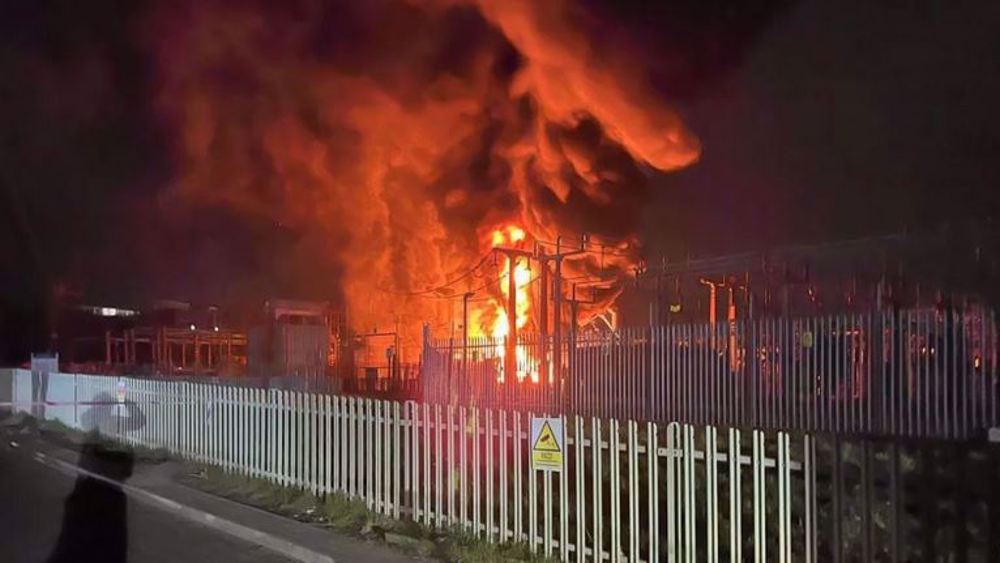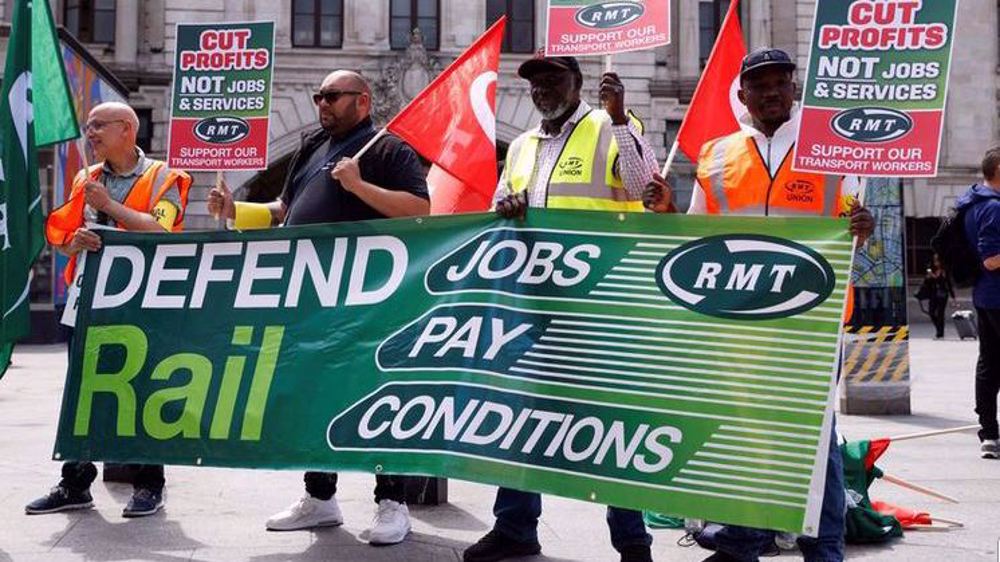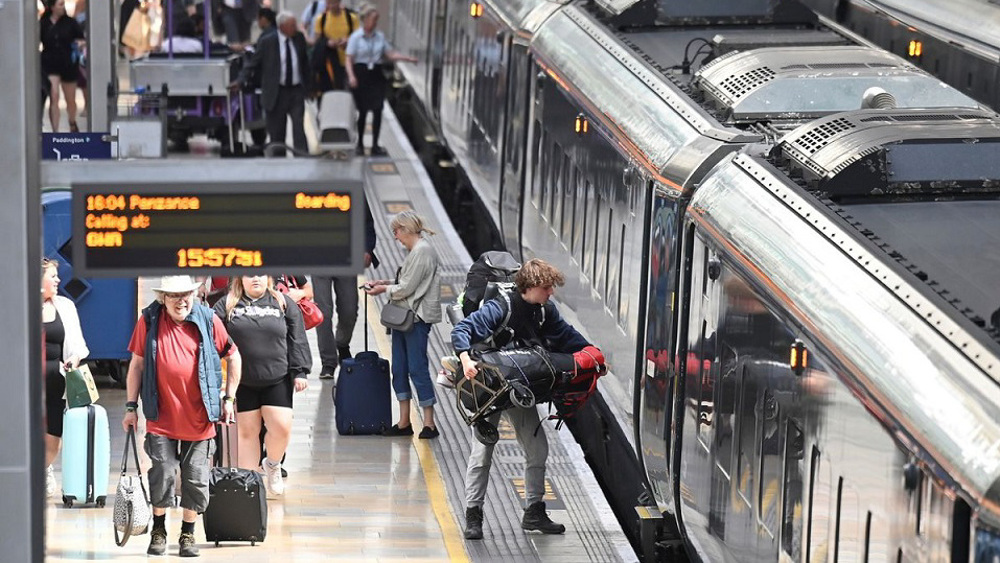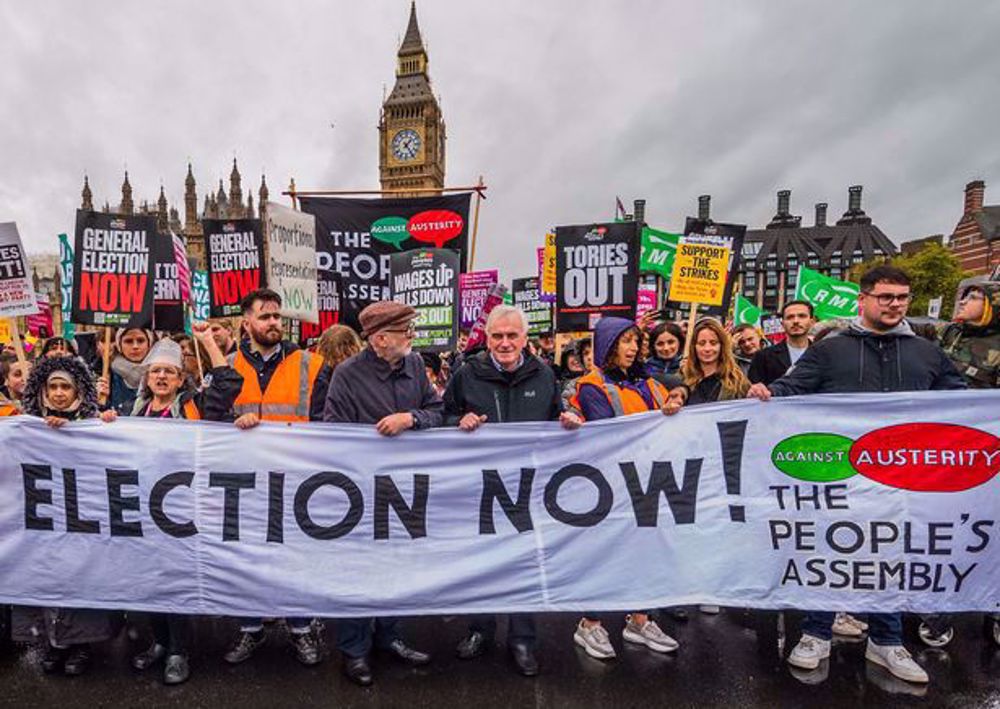UK teachers, univ. staff, postal workers go on strike
Britons have been witnessing more strikes in various sectors across the country causing disruptions in people’s livelihoods amid rising inflation and the cost-of-living crisis as the nation approaches Christmas.
Over 70-thousand postal workers as well as university staff and teachers walked out of their jobs in Scotland and England on Thursday.
The UK workers are demanding better pay and working conditions.
Read more:
Over 70000 UK university staff to strike for three days over pay
The University and College Union, which called for the latest industrial action, said the three-day strike is the biggest in the history of higher education.
In Scotland, unions asked members to close schools in an unprecedented move after months of negotiations failed to yield a satisfactory pay agreement.
The unions warned of more strikes and widespread disruption in the run-up to Christmas.
The University and College Union (UCU) said on Tuesday that “disruption can be avoided if employers act fast and make improved offers. If they don’t, strike action will escalate in the new year alongside a marking and assessment boycott.”
Various sectors in society, ranging from education, transportation, and the postal to legal services, as well as ports and telecommunications, have gone on strikes in Britain since the summer.
Read more:
UK rail workers to strike before and after Christmas
British rail workers staged several strikes this year, including the country's biggest rail strike in decades during the summer, over demands for better pay amid the cost-of-living crisis.
The Rail, Maritime and Transport (RMT) union general secretary, Mick Lynch, tweeted Wednesday that strikes can be avoided if leaders acted promptly.
.@RMTunion General Secretary Mick Lynch advises how #RailStrikes can be avoided.#SupportRailWorkers pic.twitter.com/BYiRHmSPI5
— RMT (@RMTunion) November 24, 2022
"This latest round of strikes will show how important our members are to the running of this country and will send a clear message that we want a good deal on job security, pay and conditions," Lynch said on Tuesday.
Reports on Thursday from the UK said nurses across most of Britain will next month hold the first strikes in their union's 106-year history, joining the other British workers taking industrial action over pay.
"Nursing staff have had enough of being taken for granted, enough of low pay and unsafe staffing levels, enough of not being able to give our patients the care they deserve," said RCN head Pat Cullen.
RCN announced earlier this month that the majority of its more than 300,000-strong union members "felt such injustice" that they were in favor of taking industrial action over the matter.
Cullen said the UK ministers "have the power and the means to stop this by opening serious talks that address our dispute."
The nurses' strike will be sandwiched between the first of a series of two-day walkouts by national railway workers, while postal service employees will stage fresh stoppages in the run-up to Christmas.
If the nurses' dispute in not resolved this week, the RCN will announce which particular arms of Britain's sprawling state-funded National Health Service (NHS) will be affected by the walkouts.
UK health minister Steve Barclay replied, saying he was "hugely grateful for the hard work and dedication" of nurses and regretted the strikes.
Meanwhile, experts say the soaring cost-of-living crisis has engulfed the whole of Europe, with workers going on strike every now and then across the continent, disrupting both local and international schedules, particularly during holidays.
Read more:
Europe engulfed by widespread transport strikes as cost of living escalates
Labor unions organizing strikes demand pay increases, or increased hiring, as spiraling energy costs lead to high inflation.
Union leaders worldwide hope that by mounting pressure on the countries’ leaders, they can force them to use the abundant resources at their disposal to ease the pains and hardships of the living conditions for the laborers.
Experts link the soaring living costs in Europe, in particular, and partially in the entire world, in general, to COVID-19 and the Ukraine war.
Author and commentator John Steppling linked the soaring energy and food prices in the West to these two factors.
Particularly the Ukraine war, which kicked off in February, has recently had a detrimental impact of European economies, according to Steppling.
The war between Russia and Ukraine has pushed up oil and gas prices.
The higher prices of energy will likely result in a global recession, according to some experts in this field.

Rights groups urge UK prime minister to hold back on anti-migrant rhetoric

Report: Most Britons ignorant about scale of UK slavery

London’s Heathrow announces shutdown due to ‘significant power outage’
Israeli settlers cut water supply to Palestinians in West Bank
VIDEO | Austria protests mourn Gaza deaths
Ex-spy chief urges ‘revolt’ against Israeli regime; says Tel Aviv must be ‘stopped’
VIDEO | Press TV's news headlines
VIDEO | Paris hosts ‘end famine’ rally in support of Gaza
Global reactions, offers of assistance pour in after huge deadly explosion in S Iran
Iran pres. stresses collective, effective fight against terrorism in calls with India, Pakistan PMs
VIDEO | Iran-US indirect talks











 This makes it easy to access the Press TV website
This makes it easy to access the Press TV website